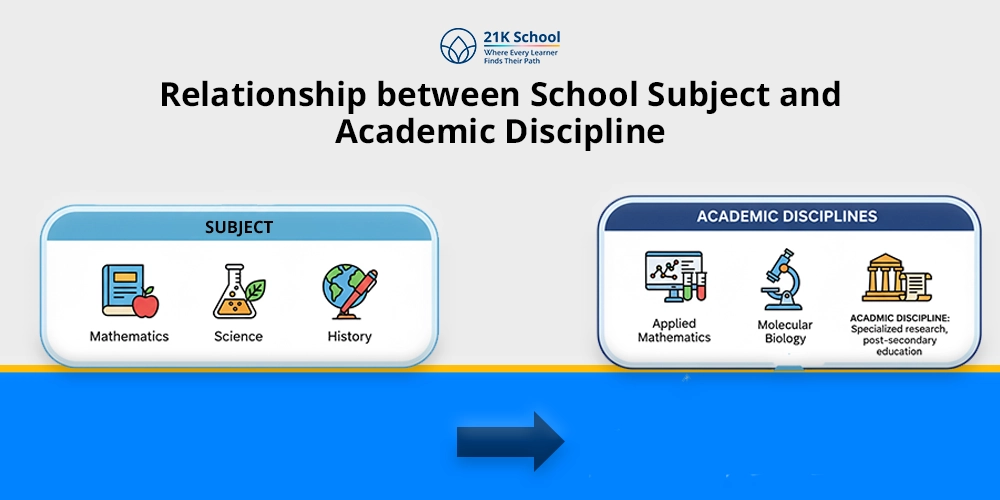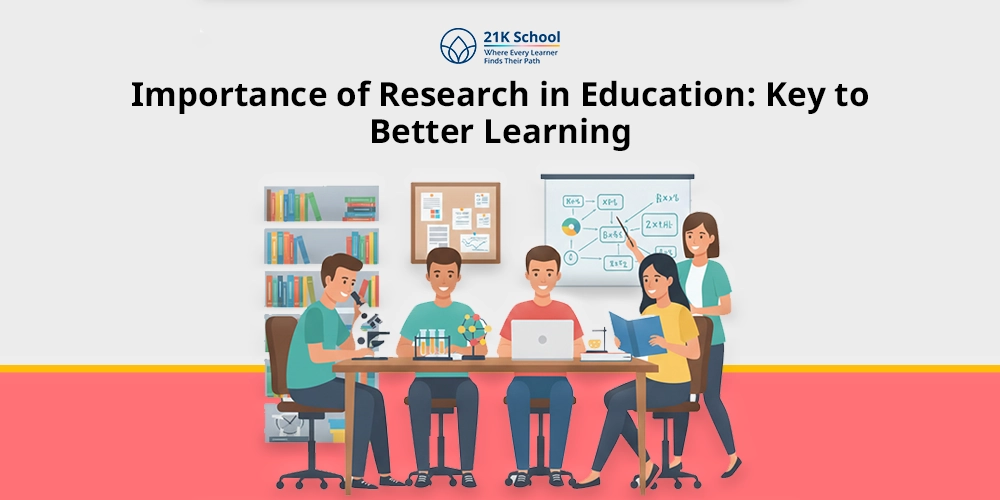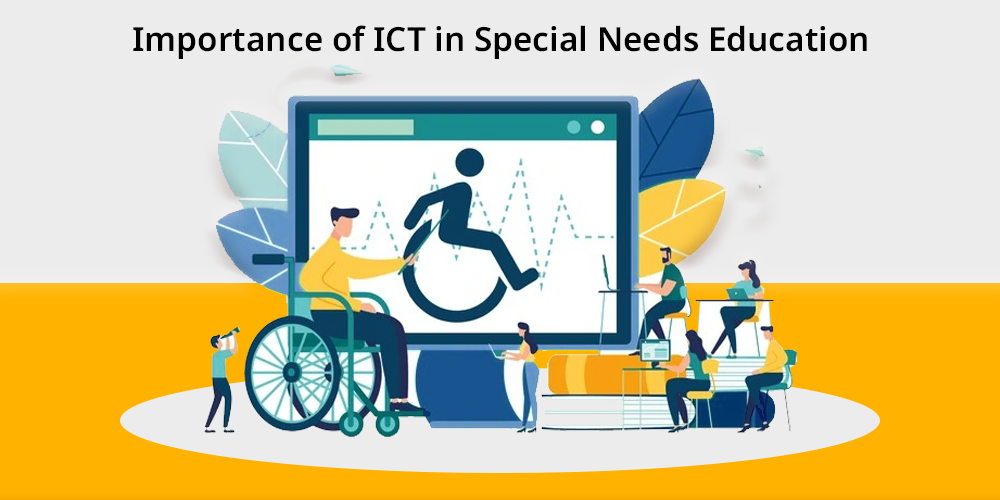
Technology in contemporary education cannot be overestimated, especially in the care of students with special needs. ICT in education provides a variety of tools that can enable teachers to overcome the traditional barriers to learning.
They can also deliver interesting, meaningful, and accessible learning experiences to students with disabilities. Whether it is physical or learning, ICT can close the gap between students with special needs and their normal counterparts.
Thus, further giving them prospects of inclusive education
The article presents 10 major relevance of ICT in special needs education and the transformative impact on learners and teachers.
Contents
- 1 10 Importance of ICT in Special Needs Education
- 1.1 1. Enhanced Accessibility
- 1.2 2. Promotes Individualistic Learning
- 1.3 3. Promotes Education Togetherness
- 1.4 4. Real Time Feedback and Evaluation
- 1.5 5. Helps and Assists Teachers and Caregivers
- 1.6 6. Develops Autonomy and Self Assurance
- 1.7 7. Better Partnership and Communication
- 1.8 8. Data Tracking and monitoring
- 1.9 9. Increased Engagement and Motivation
- 1.10 10. Breaking Through Geographical Barriers
- 2 To Sum It All
10 Importance of ICT in Special Needs Education
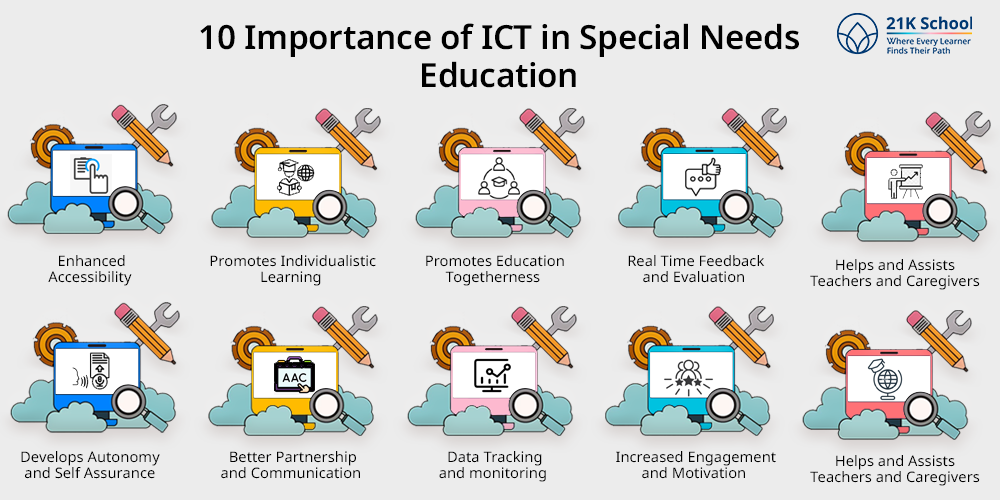
ICT has been relevant in special needs learning since it increases access, interaction, and personalized learning . It allows students with disabilities to communicate, learn at their pace and acquire critical skills.
This is done through the use of assistive devices and adaptive technologies.
1. Enhanced Accessibility
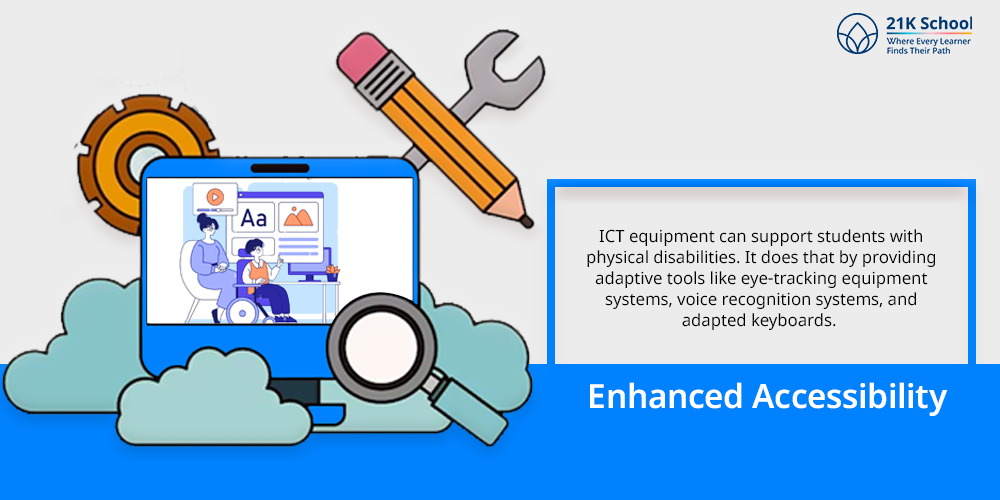
Among the greatest benefits of ICT in special needs education, is the improvement of access to students with special needs.
The digital media is adaptable to suit the specific needs of the individual. Thus, including larger fonts, screen reading for the visually impaired students, or sign language videos for the hearing impaired student.
ICT equipment can also support students with physical disabilities. It does that by providing adaptive tools like eye-tracking equipment systems, voice recognition systems, and adapted keyboards.
This allows them to access the same educational material as other students.
2. Promotes Individualistic Learning
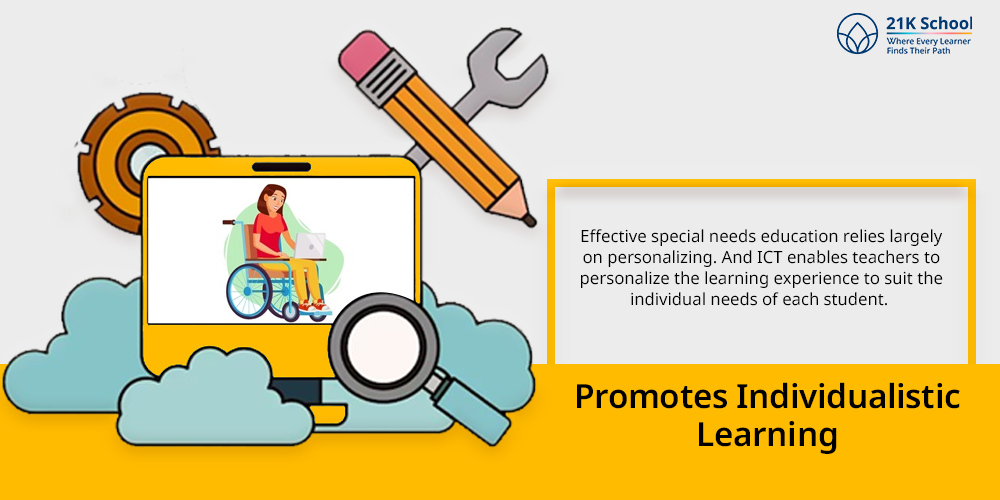
Effective special needs education relies largely on personalizing. And ICT enables teachers to personalize the learning experience to suit the individual needs of each student.
Regardless of whether the learner is dyslexic, autistic, or has some physical impairment technology can provide personalized assistance.
Apps like speech to text software are devised for students who have challenges with writing. Also, math apps in case of students with dyscalculia can assist students to work at their own speed and level.
ICT tools grant a more flexible and individual learning experience by varying the complexity level or the shape of the content.
3. Promotes Education Togetherness
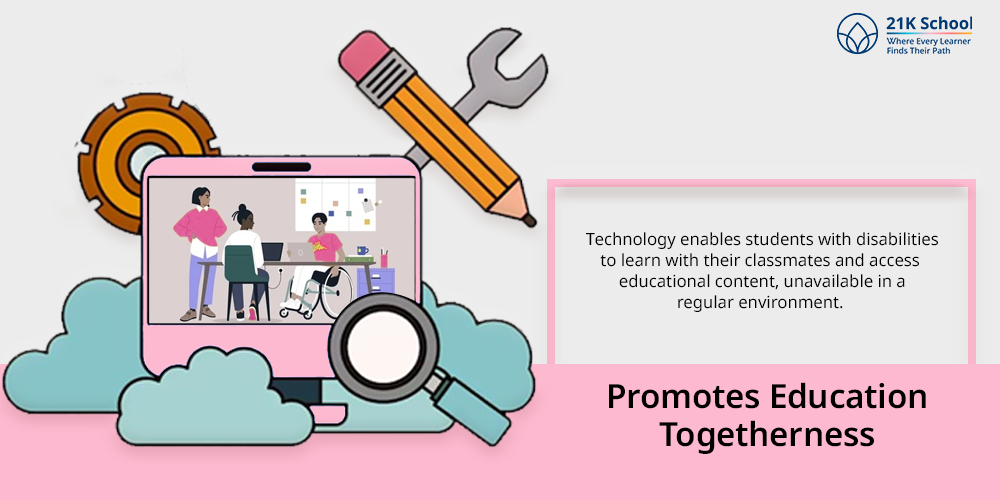
Inclusive education has made everyone, with or without abilities be taught without differentiation in an enabling environment. ICT can be used in both ways to foster inclusivity in many learning needs through its solutions.
Technology enables students with disabilities to learn with their classmates and access educational content, unavailable in a regular environment.
ICT leads to overcoming social barriers by inclusivity to promote empathy, cooperation, and celebration of diversity among all students.
4. Real Time Feedback and Evaluation
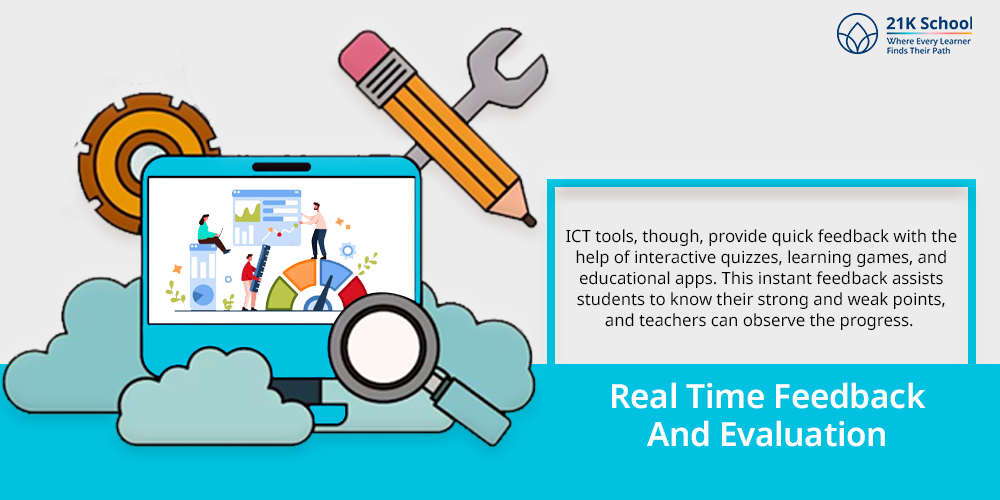
Conventional types of evaluation in education lose out on real-time feedback. And feedback is essential especially in the case of students with special needs who need to be kept on track.
ICT tools, though, provide quick feedback with the help of interactive quizzes, learning games, and educational apps. This instant feedback assists students to know their strong and weak points, and teachers can observe the progress.
Moreover, digital platforms could enable educators to possess an insight on student performance. Therefore, in the long run to modify lesson plans and the instruction method to suit each student.
5. Helps and Assists Teachers and Caregivers
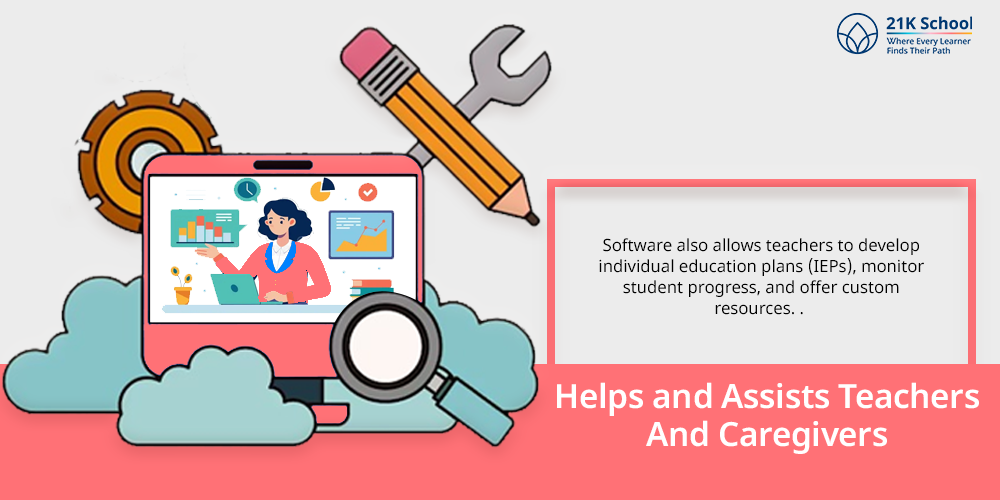
Though students enjoy the use of ICT, teachers and caregivers get assistance as well. Educational technologies provide the teachers with the tools to better manage their classrooms and help those with special needs.
Software also allows teachers to develop individual education plans (IEPs), monitor student progress, and offer custom resources. These plans are structured in accordance to students’ needs and level of education.
Not just that, ICT assists caretakers to communicate with students who are non-verbal or struggle with language. Thus, completing the circle of support around the special-needs students.
6. Develops Autonomy and Self Assurance
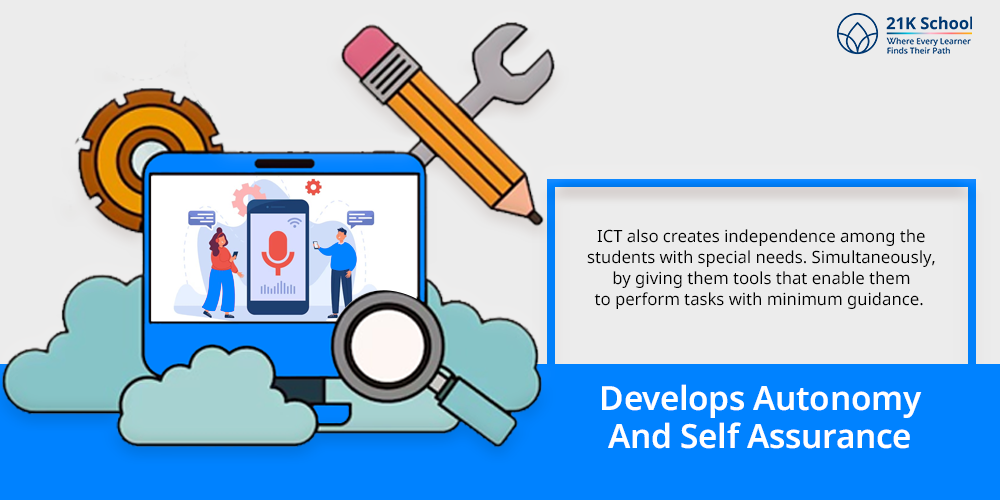
ICT also creates independence among the students with special needs. Simultaneously, by giving them tools that enable them to perform tasks with minimum guidance.
An illustration is voice-activated software, which allows students with motor challenges to move around and undertake tasks without assistance.
Such autonomy elevates the self-esteem of students as they feel good about the fact of doing something by themselves. The independence acquired through technology also equips them to live more independently in future.
Facilitators and caregivers, with technology must foster the skills of how to develop confidence in children
7. Better Partnership and Communication
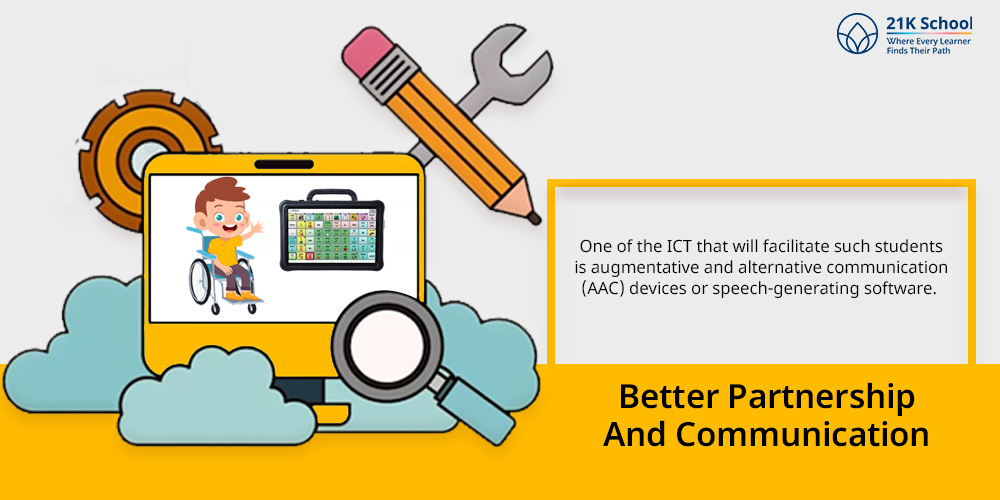
Another area some special students have difficulties during is communication. Be it speech impairment, language delay, or even social problems such as those exhibited in autism spectrum disorder (ASD).
One of the ICT that will facilitate such students is augmentative and alternative communication (AAC) devices or speech-generating software.
Technology also permits collaborative learning which may include video conferencing or online group projects
In this, learners can collaborate with each other on a project and to practice their social skills within a safe environment.
8. Data Tracking and monitoring
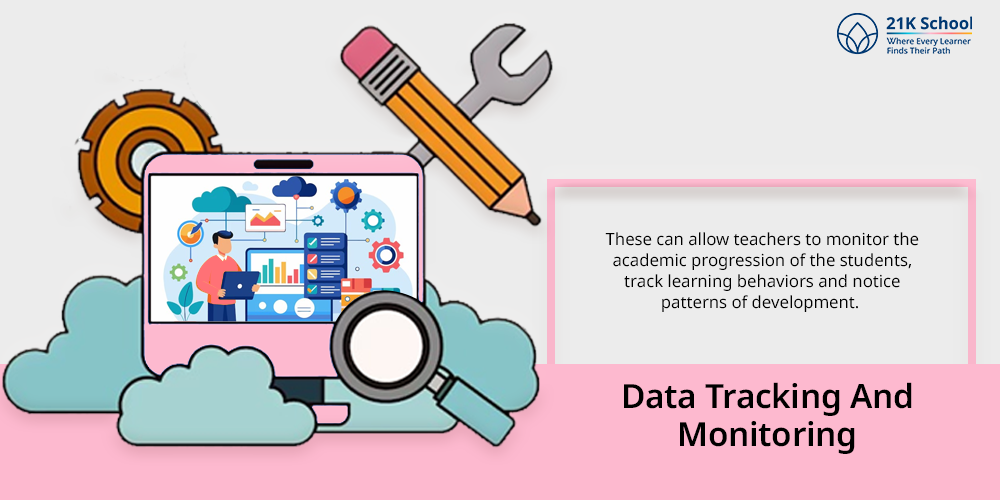
The powerful and unrivalled data information, and progress monitoring backups are enabled by ICT tools. These can allow teachers to monitor the academic progression of the students, track learning behaviors and notice patterns of development.
Such data significantly determines a correction in teaching methods and interventions. Early evaluations of students with special needs can help determine the progress in their studies.
This makes it possible to better track their progress and timely make the required adjustments to their learning schedules.
9. Increased Engagement and Motivation
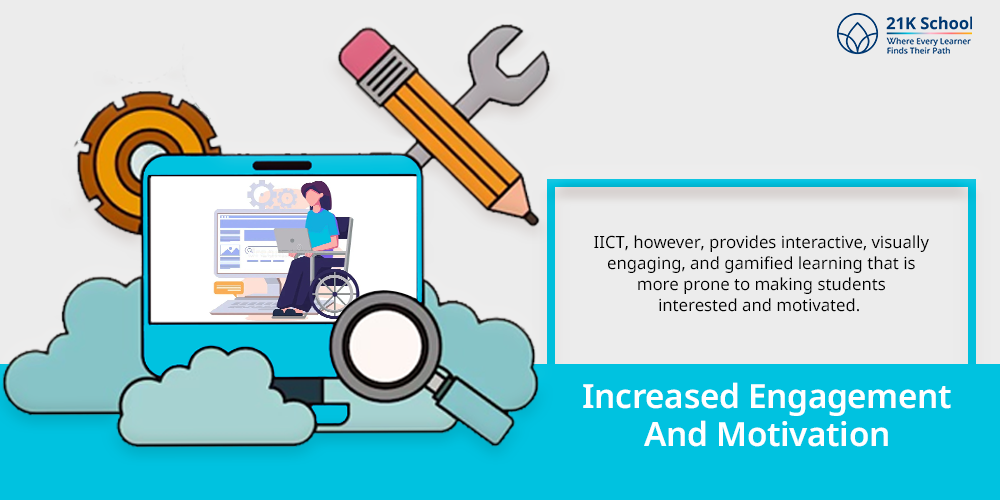
One of the most frequent problems of special needs education is the engagement issue. The students with special learning needs might not be engaged in the traditional methods of education.
ICT, however, provides interactive, visually engaging, and gamified learning that is more prone to making students interested and motivated. Education applications and games enable students to train their skills without a great deal of pressure and stimulate further study.
Immediate response of the digital mediums additionally influences the students to constantly perform better and enhance their talents.
10. Breaking Through Geographical Barriers
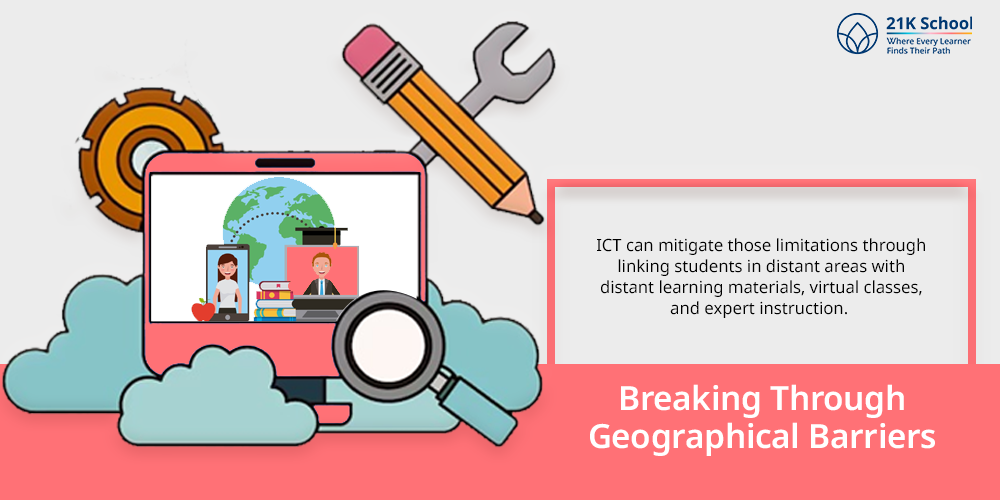
Geographical barriers limit access to special education by the students with disabilities in most regions of the globe. Places, such as the countryside, could be ill-equipped with experts in the field of the teacher or learning materials.
ICT can mitigate those limitations through linking students in distant areas with distant learning materials, virtual classes, and expert instruction.
Online courses can afford students with a disability the chance to be subjected to specialised teachers. They are the ones who can best understand how to address their particular needs despite being miles apart.
Explore importance of ICT in education .
To Sum It All
The application of ICT in special education presents life changing possibilities to transform differently-abled learners. ICT eliminates barriers that could make education difficult to students with disabilities by enhancing accessibility, supporting customized learning and inclusion.
Special needs learning and the role of technology in education go hand-in-hand. They both incorporate improved communication and independence, real-time feedback, and data tracking.
Although issues of technology access and teacher training still exist. The advantages of ICT in education support of an equitable and inclusive learning space are evident. Technology can be the answer to making education more productive, individualized, and student-engaging to the special needs students. Thus, by providing them with the means of success.

